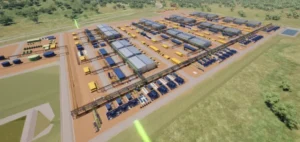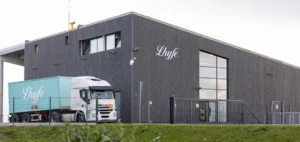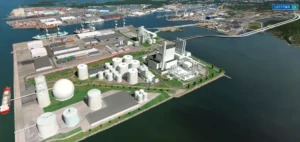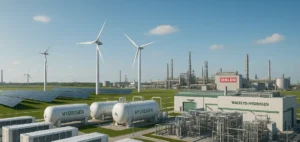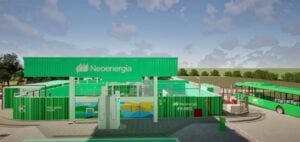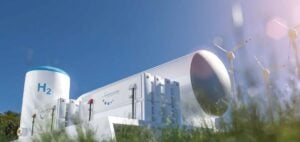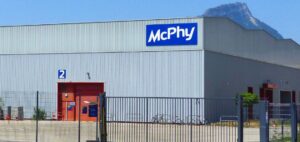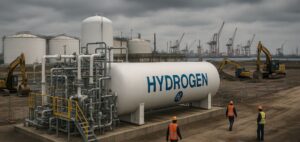The U.S. Department of Energy (DOE) is committing $62 million as part of its initiative to accelerate the energy transition, focusing on heavy-duty transportation.
The 20 selected projects, spread across 15 states, focus primarily on the development of hydrogen refueling stations, considered essential to strengthening the country’s hydrogen fuel infrastructure.
Of this total, $40 million is earmarked for four refueling station projects in New York, Connecticut, California and Arizona.
The aim is to create “low-cost, standardized and replaceable” stations, adapted to the growing needs of the freight transport sector.
David Crane, Under Secretary for Infrastructure at the DOE, points out that hydrogen is positioning itself as a key solution for heavy-duty mobility applications, due to its flexibility and potential to offer competitive alternatives to traditional fuels.
Unlike light vehicles, for which hydrogen costs remain high, heavy-duty vehicles benefit from more competitive hydrogen fuel prices, ranging from 7 to 15 USD per kilogram.
This price difference, combined with long-term supply contracts and higher purchase volumes, is driving the focus on this market segment.
Optimizing refueling components and implementation issues
In addition to refueling stations, the DOE is investing $8.5 million in projects to develop advanced components for hydrogen refueling.
Projects in states such as Washington, North Carolina, Illinois and Massachusetts seek to improve equipment efficiency, reduce costs and increase the reliability of hydrogen infrastructures.
These efforts are strengthening the integration of hydrogen into heavy transport supply chains, and making it a more attractive option for commercial fleet operators.
To facilitate the development of these infrastructures, the DOE is also allocating $7 million to implementation management initiatives.
These projects aim to identify and resolve barriers to locating, permitting and installing new hydrogen technologies.
This support includes research into the challenges of regulatory implementation, seen as a major brake on the rapid expansion of hydrogen in heavy-duty transportation.
Community involvement programs and practical applications
Another important dimension of the DOE initiative is support for local stakeholder engagement.
A budget of $4 million is dedicated to programs aimed at improving understanding and acceptance of hydrogen by local communities and businesses.
These projects include raising awareness of the economic and environmental benefits of hydrogen, without neglecting the specific needs of the regions and industrial sectors concerned.
Among the notable initiatives, a project in Georgia is receiving $2.5 million to test the use of a hydrogen fuel cell for a top loader and mobile bunker at the Port of Oakland. The project represents a practical example of the use of hydrogen in complex logistics environments, demonstrating the fuel’s versatility beyond simple road transport applications.
These experiments could provide models for the future development of industrial infrastructures using hydrogen.
Cost analysis and impact on the transport sector
Hydrogen for heavy-duty vehicles presents a tangible economic opportunity, supported by analyses from S&P Global Commodity Insights.
In California, the average price of hydrogen for light vehicles is around 33.77 USD/kg, which is significantly higher than prices for heavy-duty vehicles.
This creates a favorable market environment for heavy-duty vehicles, where hydrogen can compete with fossil fuels, especially when costs are locked in by long-term contracts and supply is on a large scale.
The DOE’s focus on developing hydrogen refueling stations, optimizing components, and managing regulatory implementation challenges is helping to solidify hydrogen’s position as the fuel of the future for heavy-duty transport.
By combining these elements, industry players are seeking to create an ecosystem of infrastructure and public policy that encourages wider adoption of this energy source.
The projects currently being funded demonstrate the desire to build an infrastructure capable of supporting the growing demand for hydrogen, while strengthening the competitiveness of US companies in the global sustainable transportation market.
By supporting both technological innovations and community initiatives, the DOE is playing a key role in shaping America’s energy future.


